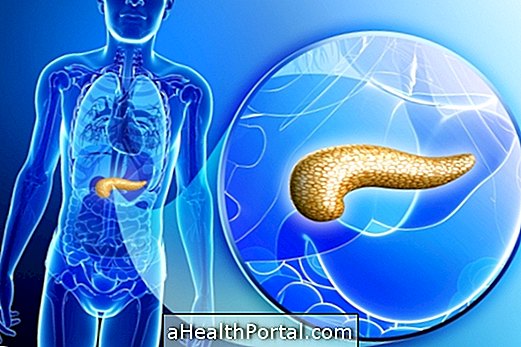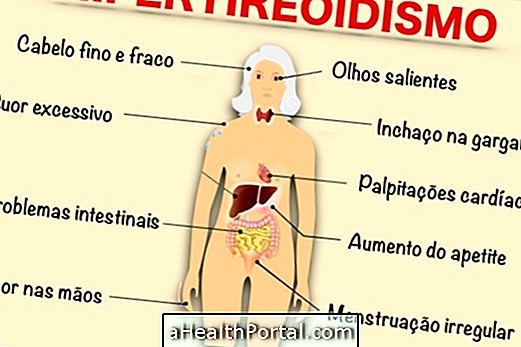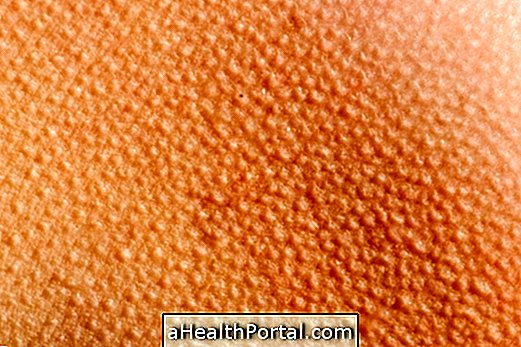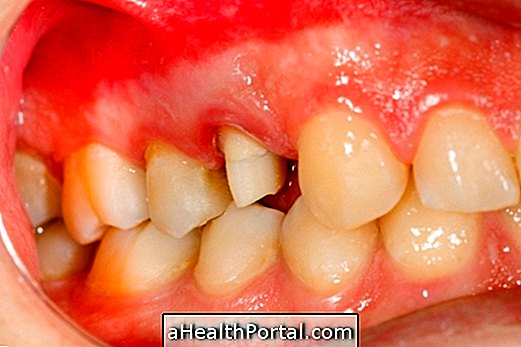Pancreatic cancer, which is the type of malignant tumor of this organ, may present some symptoms, such as yellowing of the skin, itching of the body, pain in the belly, back pain or weight loss, for example, and the amount and intensity vary from according to the size of the tumor, the affected site of the pancreas, the surrounding organs affected and whether or not there metastasis.
Most cases of pancreatic cancer do not show symptoms in the initial phase, or only very mild, which makes it difficult to identify them. However, when these symptoms are severe or when other signs and symptoms appear, it is possible that you are at an advanced stage.

Signs and symptoms
In most cases, cancer develops in cells that produce digestive juices, known as exocrine pancreatic cancer, and can cause symptoms such as:
- Skin and yellowed eyes, when it reaches the liver or compresses the ducts that transport the bile;
- Dark urine, which occurs due to accumulation of bilirubin in the blood, due to obstruction of bile transport;
- Feces whitish or fat, due to the difficulty of bile and bilirubin reaching the intestine;
- Itchy skin, also caused by the accumulation of bilirubin in the blood;
- Severe abdominal pain that radiates to the back, when the tumor grows and compresses organs neighboring the pancreas;
- Poor persistent digestion, when it blocks the release of pancreatic juice into the intestine, making it difficult to digest fatty foods;
- Lack of appetite and weight loss due to altered digestion and hormonal changes caused by cancer;
- Frequent nausea and vomiting, when the tumor blocks and compresses the stomach;
- Formation of blood clots or bleeding due to interference with coagulation caused by the hormonal changes of the disease, and injury to organs and surrounding circulation
- Development of diabetes, which can happen when the tumor interferes with the metabolism of the pancreas, changing its production of insulin;
In addition, this type of cancer can also develop in the cells responsible for producing hormones, and in these cases, the common signs include excess acidity and frequent onset of stomach ulcers, sudden changes in blood sugar levels, enlarged liver or severe diarrhea, for example.
Since this type of cancer does not cause symptoms to appear early in life, most patients only discover the diagnosis at a more advanced or terminal stage when the cancer has already spread to other sites, making treatment more difficult.
Understand how the treatment of this type of cancer is done.

When to go to the doctor
Having one or some of these symptoms does not indicate the presence of cancer, however, it is advisable to consult a general practitioner, gastroenterologist or endocrinologist when one or more symptoms appear intense or take more than 1 week to disappear.
In these cases, if the cause is not found with the clinical evaluation and initial blood tests, a CT scan can be done to check for changes in the pancreas and blood tests to see if there are changes in the levels of some hormones, confirm the diagnosis.
Main causes of pancreatic cancer
The emergence of pancreatic cancer appears to be related to genetic alterations of the organ, and some types may be hereditary, although one does not know what the exact cause is.
There are also some risk factors that predispose to the development of cancer, such as age greater than 50 years, smoking, excessive consumption of alcoholic beverages and eating with excess fats, fried foods and red meat.





















